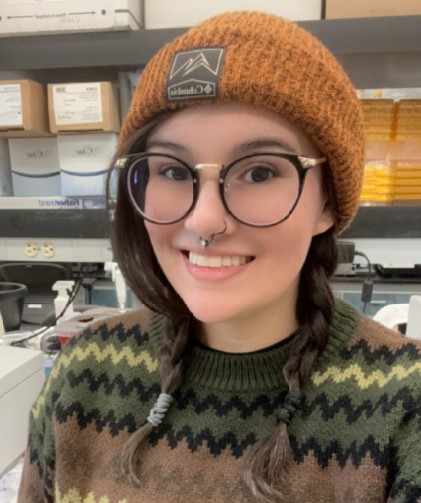Bell Lab
PI - Assistant Professor |
Professional Research Assistant |
Despite significant advances, cardiovascular disease (CVD) and cancer are still the leading causes of death globally and are increasingly co-prevalent in aging patients. Mounting epidemiologic evidence demonstrates that patients with cancer have substantially increased morbidity and mortality from CVD, and those with CVD also have a concurrent increased risk of cancer. The Bell lab focuses on understanding the bidirectional interactions and mechanistic similarities between cardiovascular disease and cancer. We investigate this relationship using multiple techniques and levels of data including inducible lineage-tracing murine models, single cell RNA and ATAC sequencing, cell culture assays, and human genetics, with all of our hypotheses being further generated and refined by experience in the Anschutz Cancer Center's Cardio-Oncology Clinic. Discovery of these mechanisms and interactions allows for improved disease screening and stratification of high-risk patient populations, the development of new therapies for cancer-mediated CVD, and improved cardiac care for cancer patients and survivors.
Lab Members:
a. Caitlin Bell, MD (PI - Assistant Professor)
b. Sandy Mungaray (Professional Research Assistant)
| Bell CF, Baylis RA, Lopez NJ, et al. BST2 induces vascular smooth muscle plasticity and phenotypic switching during cancer progression. BioRxriv [Preprint]. 2024 Sept. Available from: https://biorxiv.org/cgi/content/short/2024.09.10.612298v1 Luo L, Haas AM, Bell CF, et. Cancer Incidence After Diagnosis of Abdominal Aortic Aneurysm. Arterioscler Thromb Vasc Biol. 2024 May 23. Luo L, Fu C, Bell CF, Wang Y, Leeper NJ. Role of vascular smooth muscle cell clonality in atherosclerosis. Front Cardiovasc Med. 2023 Nov 28; 10:1273596. Schneider MK, Wang J, Kare A, Adkar SS, Salmi D, Bell CF, et al. Combined near infrared photoacoustic imaging and ultrasound detects vulnerable atherosclerotic plaque. Biomaterials. 2023 Nov;302:122314. Baylis RA, Gao H, Wang F, Bell CF, et al. Identifying shared transcriptional risk patters between atherosclerosis and cancer. iScience. 2023 Jul 29;26(9):107513. Bell CF, Lei X, Baylis RA, Gao H, Luo L, et al. Risk of Cancer After Diagnosis of Cardiovascular Disease. JACC CardioOncol. 2023 Apr 11;5(4):431-440. Gao H, Baylis RA, Luo L, Bell CF, et al. Clustering cancers by shared transcriptional risk reveals novel targets for cancer therapy. Mol Cancer. 2022; 21:16. Bell CF, Leeper NJ. Killing the two deadly birds of atherosclerosis and cancer with one stone. Nat Cardiovas Res. 2022 May 9; 1: 403-404. Ho VV, O’Sullivan JW, Collins WJ, Ozdalga E, Bell CF, et al. Constrictive pericarditis revealing rare case of ALH amyloidosis with underlying lymphoplasmacytic lymphoma. JACC Case Rep. 2022 Mar 2; 4(5):271-275. Ablain J, Xu M, Rothschild H, Jordan RC, Mito JK, Bell CF, et al. Human tumor genomics and zebrafish modeling identify SPRED1 loss as a driver of mucosal melanoma. Science. 2018 Nov 30; 362(6418): 1055-1060. Bell CF, Warrick MM, Gallagher KC, Baregamian N. Neurocognitive performance profile postparathyroidectomy: a pilot study of computerized assessment. Surgery. 2018 Feb; 163(2): 457-62. Stover DG,* Bell CF,* Tolaney SM. Neoadjuvant and adjuvant chemotherapy considerations for triple-negative breast cancer. AJHO. 2016 Mar; 12(3): 6-12. *These authors contributed equally to this work. Nandakumar J, Bell CF, Weidenfeld I, Zaug AJ, Leinwand LA, Cech TR. The TEL patch of telomere protein TPP1 mediates telomerase recruitment and processivity. Nature. 2012 Dec 13; 492(7428): 285-9. |
We are a growing lab and welcome enthusiastic and motivated team members at all levels. Please reach out to [email protected] to learn more about ongoing projects and how to get involved.

